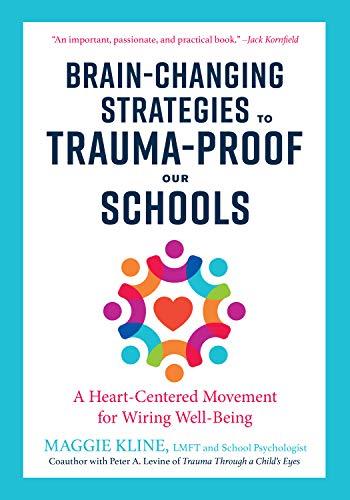Brain-Changing Strategies to Trauma-Proof our Schools
0,00 €
| Language of origin | |
|---|---|
| Infos : | Trade paperback |
A Heart-Centered Movement for Wiring Well-Being
Stop trauma in its tracks, address disruptive behaviors, and create a safe and thriving environment with a neuroscience-backed approach to running your classroom.
More than 32 million children in the US have experienced at least one type of trauma. While some are obvious, like poverty, abuse, or migration, other experiences that may be invisible or “no big deal” to adults can elicit trauma responses in kids. Under these conditions, their brains and bodies react differently than those of unaffected peers, causing anxiety, hyperactivity, aggression, shutting down, and acting out–behaviors that hinder academic success and disrupt the entire classroom.
When mental and emotional health are prioritized in the classroom as much as academic performance, everyone wins–and when you apply a trauma-informed lens to your teaching, you’ll facilitate positive outcomes for the entire class. Brain-Changing Strategies to Trauma-Proof our Schools gives you the tools to understand, identify, and address trauma-driven behaviors so students feel comfortable, supported, and safe at school–and you feel empowered and effective.
Supported by evidence-based tools and neuroscience-backed ideas, you’ll learn a whole-brain approach to trauma-informed teaching, including:
How trauma rewires kids’ brains, and how that shows up in the classroom How to integrate trauma-informed practices and social-emotional learning into your curriculum and classroom management
Trauma-sensitive concepts, relational skills, and somatic interventions How to build inner stability and create feelings of safety, connectedness, competence, and joy
TRAUMA-INFORMED APPROACH: 32 million kids in the US are affected by trauma–which alters their neurology and even inhibits activity in parts of their brains. As we learn more about the impacts of intergenerational trauma, PTSD, and post-traumatic slave syndrome, teachers, counselors, and other educators need to be armed with the skills to address how this trauma is expressed in the classroom. PRACTICAL RESOURCE: Offers practical tools, real-life case examples, and skill-building opportunities that help educators understand and apply trauma-informed principles in real life. The author’s writing is warm, candid, and accessible.
AUTHORITATIVE, EXPERT AUTHOR: Maggie Kline is a Somatic Experiencing-trained psychologist who has worked as a school counselor and school psychologist for more than 30 years. Her decades of experience and neuroscience-informed approach deliver an accessible, authoritative resource that all educators need now.




